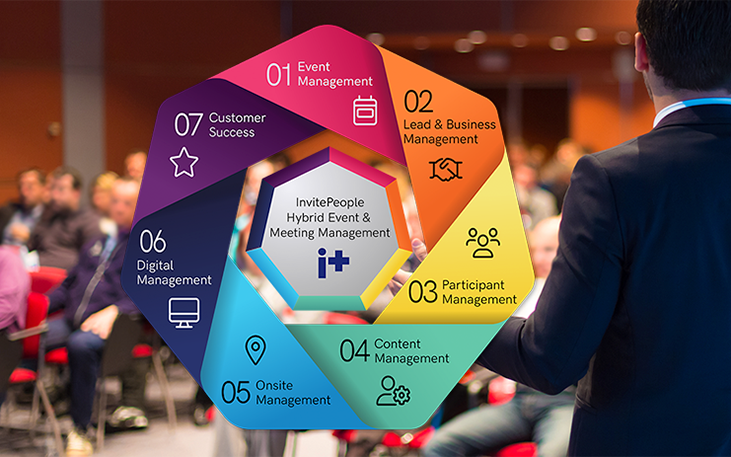Key Takeaways:
- Event planning software significantly streamlines the organization of events, offering comprehensive solutions from start to finish.
- It enhances communication and collaboration among team members, enabling effective coordination across different locations and time zones.
- Automation features save time and reduce errors, allowing focus on strategic and creative aspects of event planning.
- Improved attendee experiences are achieved through personalized interactions, leading to higher satisfaction levels.
- Data insights from software tools provide a foundation for better decision-making and more effective future events.
Table of Contents:
- Introduction
- Streamlining Event Planning Processes
- Enhancing Communication and Collaboration
- Efficiency Through Automation
- Improved Attendee Experience
- Leveraging Data Insights
- Conclusion
Introduction
Organizing a successful event involves numerous moving parts—from initial planning to execution and follow-up. In past years, event planners often grappled with manual scheduling, extensive checklists, and potential communication hurdles. However, with the rapid advancements in technology, the landscape of event management has transformed dramatically. Event planning software has emerged as one of the most critical tools in this evolution, offering many advantages that simplify and enhance every aspect of event planning. This technology reduces logistical headaches and empowers planners to focus on creating a compelling and memorable experience for attendees, ensuring that all operational aspects are competent and efficiently managed.
Streamlining Event Planning Processes
One of the primary benefits of event planning software is its ability to streamline the complex processes involved in organizing an event. Managing multiple tasks and adhering to strict deadlines become more feasible when the software integrates all necessary tools on a single, unified platform. It allows event planners to coordinate various aspects, such as budgeting, scheduling, and vendor management, with remarkable efficiency and clarity. By automating the sending of invitations, tracking responses, and finalizing agreements with venues and vendors, the software ensures consistent follow-through and accountability. This consolidation of tasks prevents oversight of crucial details and enhances overall productivity, allowing planners to redirect their energy toward creating value and innovation within the events they organize. The software’s intuitive design often provides customizable checklists and workflows, guiding planners through each process stage to ensure optimal results.
Enhancing Communication and Collaboration
Effective communication is at the heart of any event’s success, and this is where event planning software truly shines. By facilitating real-time collaboration, team members can effortlessly share updates, provide feedback, and coordinate tasks irrespective of geographical barriers. This continuous flow of communication ensures that all involved parties are aligned with the latest developments and project goals. The software consolidates all communications and documentation in one place, significantly reducing the risks associated with misinformation or confusion. By providing a centralized communication platform, the software streamlines the project’s logistics. It fosters a collaborative and transparent working environment. Integration with instant messaging systems and notification tools keeps everyone promptly informed, thus enhancing team cohesion. Efficiency in communication can notably improve the planning process, leading toward a seamless execution of event objectives.
Efficiency Through Automation
Efficiency through automation is one of the fundamental advantages of event planning software. The software’s ability to automate repetitive tasks such as confirmation emails, reminders, and post-event surveys can save planners valuable time, significantly reducing the potential for human error. This automation extends to intricate processes such as dynamic scheduling, resource allocation, and attendee management, eliminating the tedium of manual coordination. Event planners can concentrate more on the creative and strategic elements crucial for distinguishing an event by freeing up time. Moreover, automated features such as ticket sales and registration processes reduce administrative hurdles and enhance the overall effectiveness of the engagement strategies. Handling these routine tasks automatically allows for precision and effectiveness, setting the stage for a well-orchestrated event that can captivate its audience.
Improved Attendee Experience
Creating an engaging and memorable experience for attendees is crucial to the success of any event. Event planning software significantly enhances the attendee experience by facilitating tools for personalized interaction and engagement. Customized event apps, interactive agendas, and virtual networking platforms enable attendees to craft personalized event journeys, increasing their satisfaction and involvement. Attendees can access personal schedules that outline the sessions they want to attend, significantly reducing any confusion during the actual event. This provides attendees with convenience and control, reflecting their overall satisfaction. Easy access to event information and efficient communication channels contribute to a positive experience, ensuring attendees leave with favorable impressions and a desire to return to future events. Real-time notifications and updates enhance the experience by informing attendees of changes, minimizing frustrations, and exceeding expectations.
Leveraging Data Insights
A decisive advantage of implementing event planning software is its comprehensive data insights. The software enables detailed analysis of engagement metrics, attendee demographics, and post-event feedback, allowing planners to measure event success accurately. These insights are invaluable for making informed decisions, helping event planners refine their strategies, and tailoring content better to suit the audience’s expectations in future events. Understanding attendee behavior and preferences allows organizers to make data-driven decisions that foster continuous improvement. Platforms with robust analytics tools enable planners to assess marketing strategies, align event components with attendee expectations, and boost stakeholder satisfaction. Furthermore, the ability to quantify event success at various levels is instrumental in determining return on investment and strategizing for future engagements. This focuses financial and creative resources on areas that will drive the most significant impact, ultimately cultivating more engaging and successful events.
Conclusion
Integrating event planning software into event management processes presents numerous benefits, surpassing traditional methodologies. Technology’s impact on event planning is profound, from streamlined processes and strengthened collaboration to technology and insightful data analytics. Embracing these technological advancements allows planners to ensure flawless execution and deliver experiences that meet or surpass the attendees’ expectations. By incorporating such innovations, event planners can craft engagements that resonate deeply with their audience while simultaneously achieving their organizational objectives. As technology advances, adopting sophisticated event planning software is no longer optional but essential for any successful event strategy. This adoption enables planners to harness enhanced capabilities, ensuring future events are impactful and engaging but also memorable and rewarding for everyone involved.




